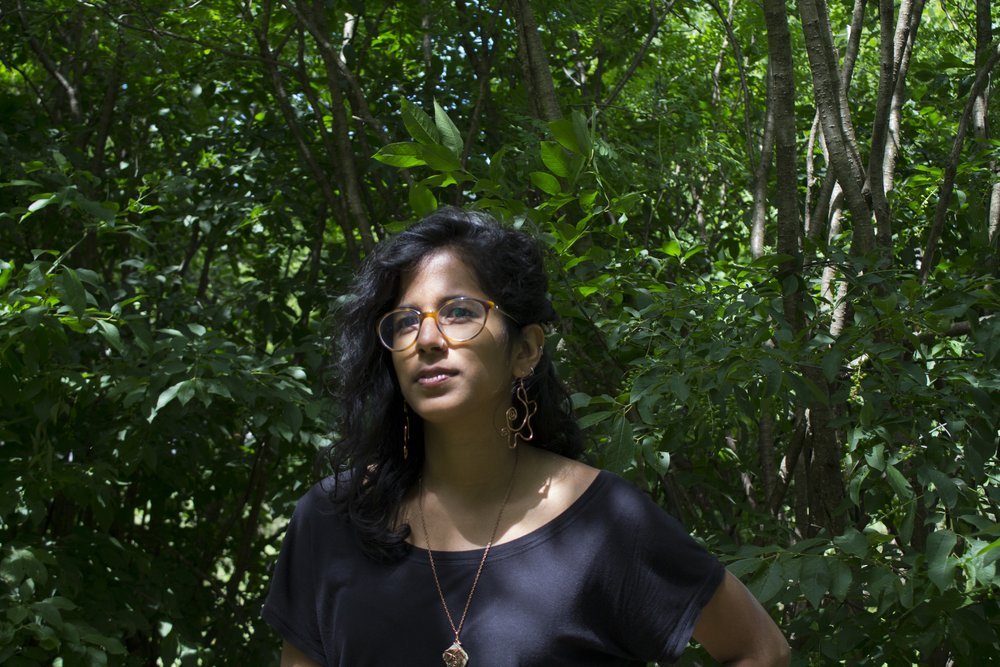Manahil Bandukwala Reviews Assiyah Jamilla Touré’s Autowar
Touré, Assiyah Jamilla. Autowar. Brick Books, $20.00, 64 pp. ISBN 9781771315630.
Assiyah Jamilla Touré’s debut poetry collection Autowar catalogues the daily wars we face and how we continue to live even when marked by pain. With language reminiscent of Aisha Sasha John’s hard-hitting performance poetics, Touré takes readers through cycles of wounds and scars with a sense of immediacy. We stay in motion, despite our wounds and pain.
The collection opens with the poem “beckoning,” where Touré introduces key themes of the book: loneliness, isolation, aching, grief, and woundedness. The stanza reads: “abandon me / i might retain the knife-wield of my aches / above you or any god is the taste of my own wound.” Touré’s narrator walks through these poems often alone. There is always some kind of action being taken in this walk, whether through beckoning in this poem or through “searching / buried in the nape / of another animal” in the next.
Animals and the divine are recurring motifs, and appear in striking images. In “nocturnal,” the speaker “sway[s] side to side in front of the vanity / …[oscillating] between self-idolatry and loathing.” The line between animal and divine blurs as “errant sailors [mistake] the manatee / for a goddess or princess or warm body,” after which we “avert our eyes and lend them our shyness.” However, the line between animal/divine and human is stark as the speaker then describes how “we are aghast at the nakedness of animals / we demand it until we are sick of it — we are feral // we could be animals again if we wanted.” The repulsion at animal behaviour comes up against the elevation of the divine. “nocturnal” offers a glimpse into the polarized ways we can see ourselves, ways that can occur in the same instance.
The blurs between elevation and repulsion continue in “idolatry,” as Touré writes “if i am a deity I am of the rank closest to dirt.” Even deification comes in hierarchies. The celestial enters the ranks of divinity in “idolatry.” The narrator becomes “transplendent, glittering,” though not without being aware of the poison Touré describes in the air. Later, they state: “if they ask why i did it / tell them it was for the sun / beyond the sun i have need of nothing / i’ll eat nothing else, sungazing.” This constant awareness of poisonous and dangerous surroundings creates the underlying ache and loneliness of an “autowar.” No matter what the narrator chooses to do, there appears to be violence at every corner. As this poem closes, the narrator is “giving all my effects / over to stillness.”
In “other i,” the speaker imagines virtual realities, asking “who plugs into a game for a pretend life of suffering? / no one would upload into a rigged bout, no lives / inventory empty, enemies mechanical, lying in wait.” The self becomes “a plaything” in this poem. In the virtual world, the narrator questions whether they are “more ready to fight / less small, less borrowed / every bit as dark, but a little less black?” Ultimately, the “other i” is not so different from the “i” we have been following in earlier poems. The virtual world, much like the real world, rarely offers any relief regardless of how the “i” behaves. While there is grief in this realization, there is also an assurance of knowing what happens to us is not our fault.
This care is one of Touré’s strengths throughout the book. Many of the poems in Autowar trace feelings of anger and frustration that emerge after having time to think about how the body has been wounded. There is the aching of familiarity in lines such as “i am not tight my body dislikes you.”
Poems like “the intimacy of absence” circle back to themes of loneliness and aloneness, and explore the distinction between the two. Like so many other poems, this is one that conveys what it means to ache in lines such as: “we can love each other in avoidance / we like the memory of pulling away.” Love is present through its absence.
The sun returns, a constant amidst the absences that make up the speaker’s journey. In “sun pharaoh,” Touré writes of anonymity: “under his sleepy gaze i could be anyone / i craved that and its namelessness / a year spent collecting the sun.” This is where aloneness once again shines over loneliness. Through the scars, the feeling of being able to change oneself becomes a source of power, much like the sun.
Autowar concludes with the poem “autodeity,” bringing motifs of the divine back to the self. Touré writes: “i’ll never be smarter than this / a blessing,” which is a gentle reminder of how giving to emotions can lead to lives filled with care. The speaker has accepted a life of constant regrowth, where “every six months i shed my skin / and become new and pure.” The animal merges with the divine, both of which finally blur with the self.
Touré’s language is musical and moving, offering ways for boundaries between self and other to blur. Rationality gives way to emotion, and from this movement we can move through our wounds and begin anew.
Manahil Bandukwala is a writer and visual artist. Her most recent works are Encounter (with Nimra Bandukwala) and Orbital Cultivation (with Liam Burke). Her debut poetry collection, MONUMENT, is forthcoming in 2022. See her work at manahilbandukwala.com.


